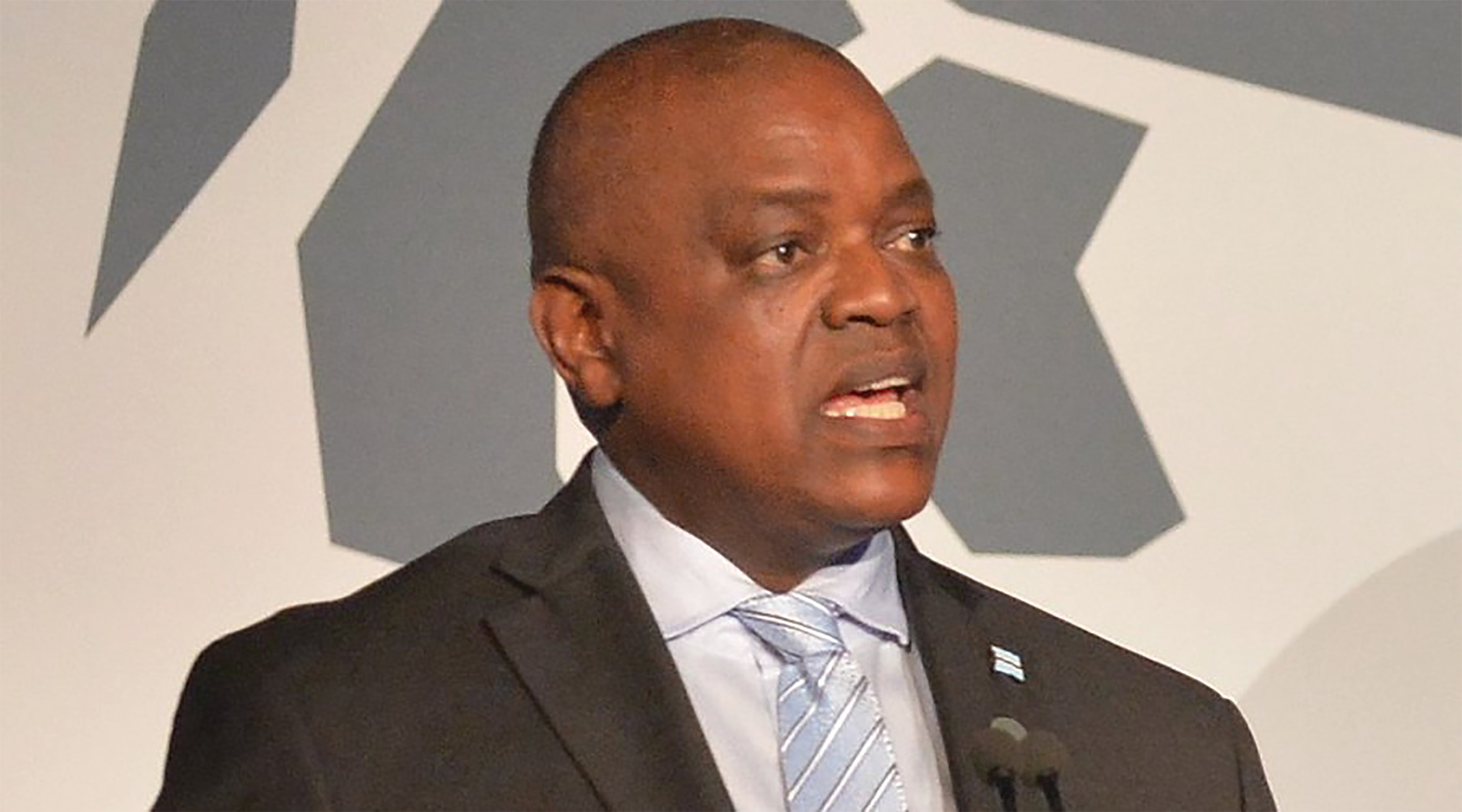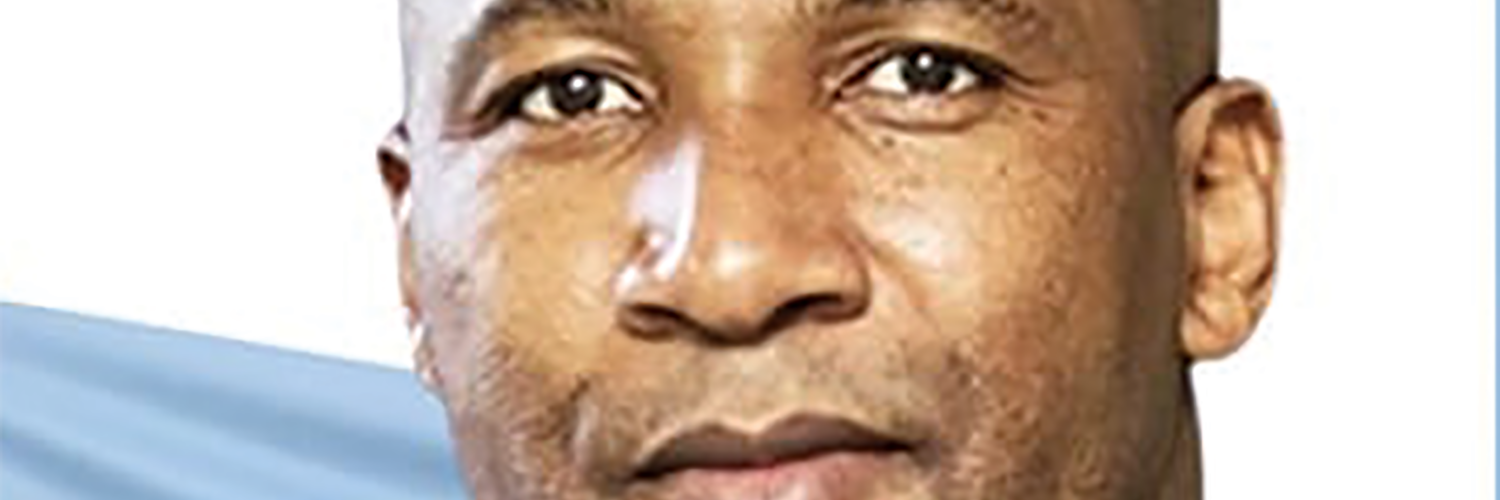TRANSITION: President Mokgweetsi Masisi concedes defeat after shock outcome for the long-governing Botswana Democratic Party…
By News Agencies
Voters in Botswana have delivered a shock defeat to the party that has ruled them for nearly six decades by handing victory to an opposition coalition and its presidential candidate Duma Boko.
Boko, the 54-year-old of the Umbrella for Democratic Change (UDC), will replace President Mokgweetsi Masisi, who today conceded defeat after his Botswana Democratic Party (BDP) lost by a landslide for the first time in 58 years.
“From tomorrow… I will start the process of handover,” Masisi said in an audio clip of a phone call with Boko that the outgoing leader posted on social media, signalling a smooth transition of power.
“You can count on me to always be there to provide whatever guidance you might want. … We will retreat to being a loyal opposition.”
Chief Justice Terence Rannowane officially declared Boko the victor. “I have the honour and privilege to declare him as elected president of Botswana. I congratulate you profoundly for the confidence that the people have shown in you,” he said on today.
Earlier, the Independent Electoral Commission (IEC) spokesperson Osupile Maroba told the AFP news agency: “The UDC has reached the minimum requirement to be declared the next government.”
Under the country’s electoral system, the first party to take 31 of 61 seats in the legislature is declared the winner, can then install its candidate as president and form a government.
The UDC passed the threshold, according to early results released on state television, which said the party had won 32 seats based on results from 55 of the 61 constituencies up for grabs. This would make its leader Boko the president-elect.
The results are expected to be confirmed by the IEC later today. The BDP was trailing in fourth place, according to tallies by the IEC.
“We got it wrong big time in the eyes of the people,” Masisi, who was seeking a second five-year term in Wednesday’s elections, said at a news conference in the capital, Gaborone.
“We were really convinced of our message. But every indication, by any measure, is that there’s no way that I can pretend that we’re going to form a government.”
The BDP has governed the diamond-rich Southern African nation since 1966 and was expected to win.
Boko, a lawyer and Harvard Law School graduate, didn’t immediately comment but posted on his official page on X: “Botswana First” with a picture of a UDC campaign poster with the words “Change is Here.”
It was the third time he ran for president after contesting in 2014 and 2019. He founded the UDC in 2012 to unite opposition groups against the BDP.
The opposition Botswana Congress Party had won seven seats, and the Botswana Patriotic Front had five seats with the BDP at just four, the partial tally showed.
Masisi, a 63-year-old former high school teacher and UNICEF worker, had been widely expected to keep his parliamentary majority and serve a second and final term.
Botswana, often held up as one of Africa’s greatest success stories, ranks among the wealthiest and most stable democracies on the continent. But a global downturn in demand for mined diamonds, which account for more than 80 percent of Southern African exports, has taken a toll on the economy.
Economic growth is expected to slow to 1 percent in 2024, according to the International Monetary Fund, down from 2.3 percent last year and 5.5 percent in 2022. Unemployment has risen to 27 percent with an even greater share of young people out of work.
Before the vote, the BDP had acknowledged the need to diversify the economy, pledging to develop new drivers of growth, such as agriculture and tourism.
“I am proud of our democratic processes. Although I wanted a second term, I will respectfully step aside and participate in a smooth transition process,” Masisi said.
More than one million people were registered to vote out of a population of 2.6 million.
The BDP did not “have anything new to offer”, analyst Ringisai Chikohomero of the Pretoria-based Institute for Security Studies told the Reuters news agency. “It was very clear that the president was really relying on incumbency.”
But the UDC put forward ambitious policy proposals, he said, by pledging to more than double the minimum wage, improve social services and create a more independent judiciary.
Who was running?
Mokgweetsi Masisi

Representing the BDP, 63-year-old Masisi was taking one more, final, swing at the presidency, and failed. He was the favourite to win because of his incumbency and the BDP’s 58 years of dominance. The party has been increasingly weakening from internal frictions but boasted a strong support base in the rural population and the Tswana-majority ethnic group.
Masisi was vice president to former President Ian Khama who, upon the expiration of his term, handpicked Masisi in 2018. However, the two politicians fell out once Masisi took office, leading to Khama exiting the party along with his loyalists. Khama accused Masisi of betrayal for undoing his policies, including lifting a ban on trophy and elephant hunting in the country as well as decriminalising homosexuality.
Masisi ran as president in the 2019 election and won. His term has been shadowed by his tussle with Khama, which is fracturing the BDP internally as factions emerge. A global downturn in the price of diamonds in recent years has also reflected badly on the president, with many blaming him for rising inflation and unemployment at home.
Internationally, Masisi has ruffled feathers for his stance on elephant hunting. In April, he threatened to send 20,000 elephants to Germany after the European country attempted to ban trophy imports. However, the president won praise at home last July after re-negotiating a long-term agreement with mining company De Beers to increase by 100 percent the shares of the rough diamonds Botswana gets from their joint partnership.
Although the country has always enjoyed peaceful elections, struggles within the BDP and increasing anger against Masisi’s economic policies have been causing fear among Batswana about possible post-election tensions.
Duma Boko
The 54-year-old lawyer led a coalition of opposition parties under the banner of the UDC. The UDC coalition significantly challenged the BDP in 2019 to come second with 15 seats.
Boko was the biggest threat to Masisi now, as a usually weak Botswana opposition became increasingly popular towards the polls, leading some local analysts to speculate that the result might be too close to call, although many disagreed.
Boko’s UDC promised more lucrative jobs to young people and has tried to woo voters with the promise of government stipends.
Many of Masisi’s detractors accused him of stifling dissent and undoing democratically passed laws, such as the trophy hunting ban. However, analysts pointed out that under Masisi’s government, Botswana had maintained a stable democracy.
“The accusations of dictatorship from detractors are a result of frustration of the pending constitutional review process that Masisi’s government is seen to have not delivered,” Mbanje said, referring to a three-year-long constitution amendment process that was approved this year, but had not taken full effect.
The new regulations are set to bar retired presidents from holding other high positions, prevent dual-country citizens from election to parliament, change the composition of the country’s judicial services agency and tighten protections for the LGBTQ community.
Dumelang Saleshando
Saleshando, 53, is the leader of the Botswana Congress Party (BCP), another of the main opposition parties.
Mephato Reatile
Reatile is the leader of the Botswana Patriotic Front, one of the newest parties with only four members in parliament. The party was formed by followers of ex-President Khama after his exit from the BDP.
Khama returned from a three-year self-imposed exile to South Africa this September to back the party, in the hopes of removing the BDP and his rival, Masisi, raising the levels of tension around the election.
The former leader also appeared in court on charges of illegal gun possession and money laundering upon his return, sparking more controversy. – Al Jazeera

































